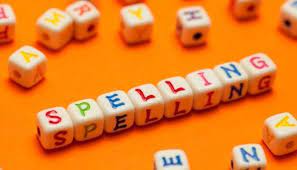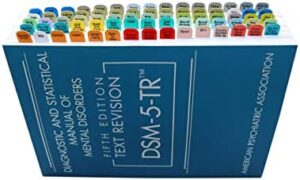Month: November 2022
TWO MINUTE+ TIDBIT TIPS: STAGES OF READING PART II
“‘OQ’ Low or You Don’t Give & You Get”
 14-year-old Jamie comes in for an assessment. His pediatrician has told the parents that he thinks Jamie has inattentive ADHD.
14-year-old Jamie comes in for an assessment. His pediatrician has told the parents that he thinks Jamie has inattentive ADHD.
When I meet Jamie I do my best to connect with him, but he’s not buying what I’m selling. Giving me blasé’ (“must I do this”) fist bump as a starting point, he conveys that he can’t wait to be out of there.
When the assessment starts I ask Jamie to write down three things that he likes to do. Instead of writing, he says something in a mumble like, “I don’t like to do too much – mostly video games.” (Nothing gets written down.)
Later, on a task where I have Jamie copy different shapes and designs on the page and to put blocks together in patterns, he goes through the motions, but there is no attempt to correct himself when a design or block pattern is obviously wrong.
It seems that the only thing on Jamie’s mind that matters is getting done with this annoyance so he can go back to his screens at home or on the phone that his parents gave him on his birthday (with no strings attached, I might add).
It would be one thing if what was observed was unusual for Jamie, a function of not liking me or the assessment situation, but this occurs on a daily basis and it is pushing his parents buttons.
In short, Jamie has a low “OQ” (i.e., a low “Oomph Quotient”).
To my knowledge there is no easy fix to remedy a low “OQ.” Certainly, many kids with a low OQ are diagnosed as ADHD or “ADD.” Perhaps medication can give them a little bit more oomph, but my sense is that it is deeper than we are owning and understanding.
A good first step is to recognize it for what it usually is – a total disinterest in anything beyond their screens.
Once it is recognized for what it is, an honest conversations can take place between parent and child about what the low “OQ” means and how much of a problem it is creating.
You may want to clarify that that the phone and iPad that were given to them is really not theirs, since you are paying the bills for them and the internet. Effectively, like giving the kid the keys to the car provisionally, you are letting them use these devices.
Takeaway Point
There is a basic formula not readily understood in “Screenland.” (i.e., “You give and you get..”). Instead, they live by the formula they have created is, “You don’t give, but still get.”
Start changing the formula to chisel away at the low “OQ.”
Copyright, Richard Selznick, Ph.D. 2022, www.shutdownlearner.com.
To Contact Dr. Richard Selznick for advice, consultation or other information, email rselznick615@gmail.com.
“‘Spelling. That’s So Yesterday'”
 Let’s say your 12-year-old sixth grader spells the following words:
Let’s say your 12-year-old sixth grader spells the following words:
- (brief) bref
- (success) susess
- (educate) edcccate
- (result) resolt
- (kitchen) kicten
Then writes the following story to a prompt:
“Once a o pon a time there was a kid that was a million air and he whated to buy a house he look at so many house and finally found a house. but it needed a lot of work So the kid hierd lots of pepul to help him but after thay were all done the house went back to it whent back to the way it was.”
Or, perhaps you have an 8-year-old third grader who writes:
“I hrd a son. It was funne. My dad was beyenfunne was he dats Wen he was in the cr Wan we wr gown to the prck.”
(Translated as best I could after the child tried to tell it to me – “I heard a song. It was funny. My dad was being funny when he danced. When he was in the car when we were going to the park.”)
When the parents raised the issue of their concerns about their child’s spelling and writing, in each case the response was, “Well, spelling really doesn’t matter – they can use spell check.”
For those of you following this blog for a while, I am sure that you will predict that I respectfully disagree.
A study conducted where classroom teacher practices were observed, revealed that less than 5% of the language arts instructional block time is devoted to spelling or direct instruction in writing.
For approximately 60% of the school population, this is not particularly relevant, as their skills develop along a natural trajectory.
For the rest, simply saying, “They can use spell check” is not a substitute for the challenging work needed.
Copyright, Richard Selznick, Ph.D. 2022, www.shutdownlearner.com.
To Contact Dr. Richard Selznick for advice, consultation or other information, email rselznick615@gmail.com.
“A Few New Disorders”
 This week we turn our sights to a few disorders that may make it into the diagnostic manual upon its revision.
This week we turn our sights to a few disorders that may make it into the diagnostic manual upon its revision.
The first is one that I know I have very badly. It’s being called “PBD,” or “Pushback Disorder.” PBD usually manifests when parents come in with theory upon theory as to why something is taking place.
Snippets of conversation reveal PBD.
Parent: “My child has ‘ADHD,'” so that explains why he was rude to the teacher.”
Rapidly my PBD comes out – “How do you know the child has ADHD and that’s the root of the rudeness?”
The parent then talks about the pediatrician diagnosing the child based on the Vanderbilt Scales and my PBD goes into high gear. “What about the reading skills? Anxiety? Social relationships? Shouldn’t these and other things be considered before concluding ADHD is the entire story?”
The second disorder is one that is showing up in my office a great deal – IWWIWD (i.e., “I Want What I Want Disorder”). IWWIWD shows up when the child has a meltdown over something that they don’t want to do, like get off their iPads or phones and start their homework. IWWID is very challenging for parents to manage and often gets misdiagnosed as ADHD.
The final disorder that I hope makes the cut in the new manual is called NBD or “No Backbone Disorder.” Sometimes referred to as “Gumby Disorder,” it is revealed when parents ask the child permission to do something like get ready for bed, but not stated with any clarity or confidence. Language is very revealing of NBD, such as when the parent hesitantly asks the child, “Hey, bud, isn’t it time we got off our phone and got ready for bed? (While fully expecting a full-blown fit from the child who continues playing Roblox on the phone.)
It is important to recognize how these disorders interact with each other and can increase in magnitude. So a bad case of NBD coupled with a child who is showing IWWIWD can lead to lots of school and home issues that often land you in a psychologist’s office.
Just make sure you have the stomach to deal with a psychologist who has a bad case of PBD.
Copyright, Richard Selznick, Ph.D. 2022, www.shutdownlearner.com.
To Contact Dr. Richard Selznick for advice, consultation or other information, email rselznick615@gmail.com.
